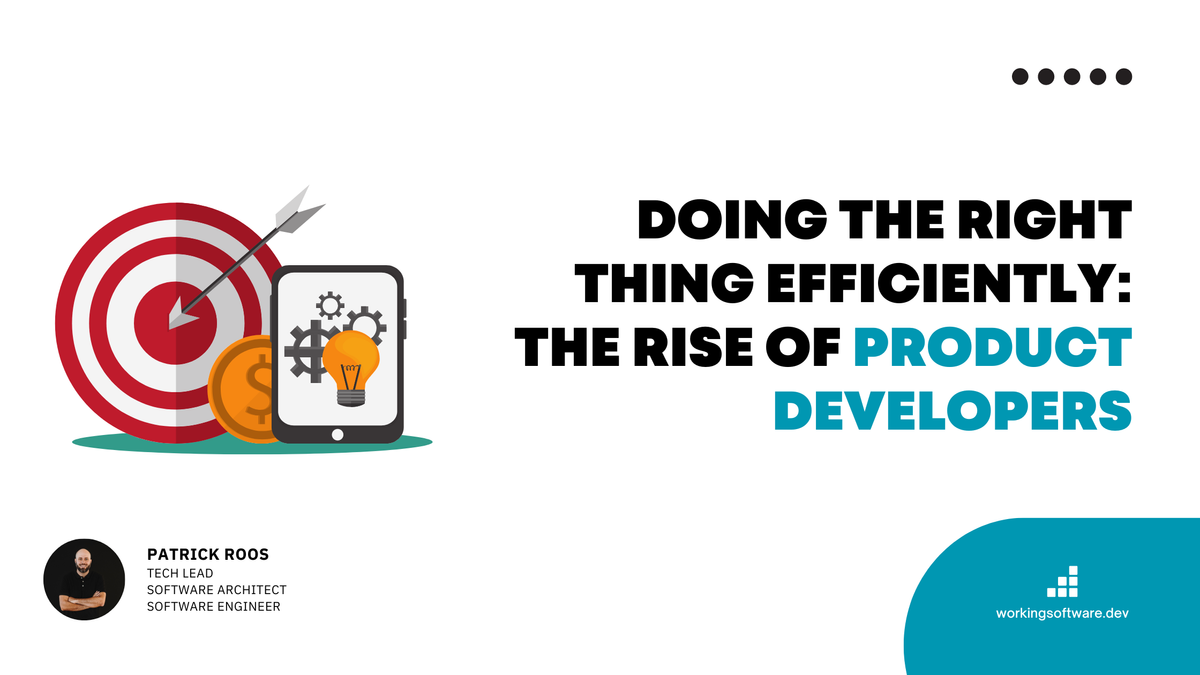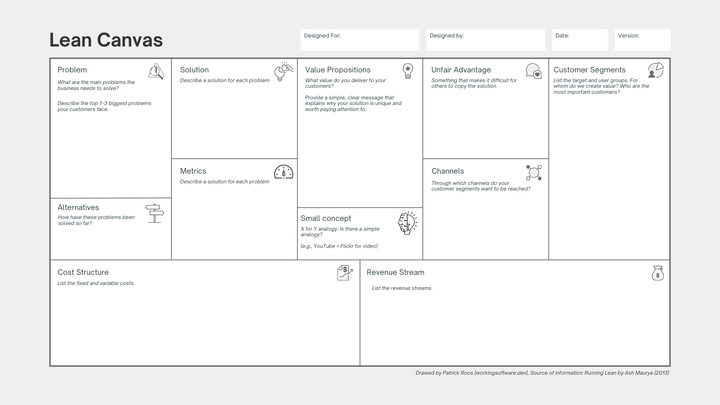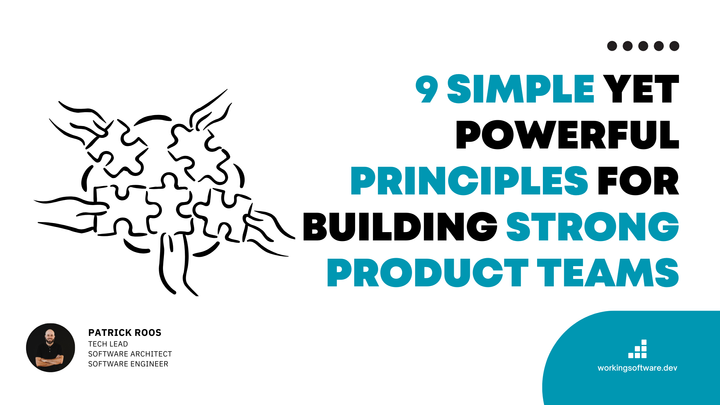Doing the Right Thing Efficiently: The Rise of Product Developers
In today’s tech landscape, product developers who combine entrepreneurial spirit and software craftsmanship are more important than traditional software developers. They drive true innovation and align their work with business goals to ensure efficiency and faster time to market.

I often have lunch with various managing directors, technical managers and staff engineers from software companies. In these conversations, it often becomes clear that today's developers are more excited about the latest technology and have a cv-driven approach than they are interested in the underlying business of the future software product.
This can often lead to a problem.
It can lead to a divergence between the business and the expectations of the techies. The "business side" wants a working commercial software product quickly. The techie want to try out the latest technologies.
This in turn leads to misunderstandings, leads to expectations not being met, which in turn and ultimately unmet business goals.
Here are my thoughts on this recruiting issue.
Just as a note: I understand and support the enthusiasm for technology. I'm also enthusiastic about the latest technologies, observe technology trends and try out new technologies (see my Technology Radar).
Developers are the builders of the new product. So it's a must have that they understand clearly the business goals, the underlying domain and the future user of their product.
The tech landscape is constantly changing. The business goals and the underlying business domain as well as the business problems to be solved are rather static.
In today’s rapidly evolving tech landscape, the roles that drive innovation and growth are shifting.
Software companies need more product developers than traditional software developers.
This shift isn't just about technical skills, but also about fostering an entrepreneurial mindset that transforms ideas into impactful products using modern technologies.
Product developers: Entrepreneurs who have mastered software engineering
Product developers are characterised by the fact that they not only master software engineering, but also have the entrepreneurial spirit to develop and deliver products that solve real-world problems and achieve business goals.
Unlike "traditional" software developers, who are mainly concerned with technologies, product developers take a holistic approach.
They understand or at least try to understand the market, know the problem and the underlying domain, can empathize with the users and align their work with the strategic goals of their company.
This blend of technical and business acumen ensures true innovation and pure efficiency.
The power of a small, focused team with product developers
A small, focused team of product developers can outperform larger teams of traditional project team members.
This is my thesis:
Five product developers can be more effective than twenty project team members.
And why?
Because product developers want to achieve the actual business goal, and that often means commercial success.
That's why they stay away from superfluous meetings, don't chase after every technical hype, make sound decisions quickly and adapt to change with real agility.
The result is faster time to market and a unified product vision, whereas larger teams often struggle with coordination and maintaining a consistent direction.
Hiring for entrepreneurial attitude and experience instead of latest tech certificates
When you're putting together a product team, it’s important that you hire them for their attitude and mindset, not just their skills or resume.
Look for people who are passionate about solving business problems, who are willing to take risks and who can deal with uncertainty.
When selecting potential team members, prioritise entrepreneurial experience and/or product development over an impeccable university degree or a slew of the latest technical certifications.
E.g. a co-founder with a startup (also failed is valuable) background brings invaluable lessons, resilience and practical knowledge that far outweigh academic achievements.
These experiences provide a deep understanding of the challenges associated with bringing an idea to market.
Adding individuals with such backgrounds to your team gives you the bite, creativity, real-world perspective and hands-on mentality that are critical to success.
Rationalisation of agile roles
Building a team of product developers reduces the need for various well-known "agile" roles such as Product Owners (PO), Scrum Masters (SM), Requirements Engineers (RE) and Business Analysts (BA).
Thanks to their comprehensive approach and their strategic and business-oriented thinking, product developers take on many of the tasks behind these roles right from the start.
This consolidation leads to a leaner way of working, clearer communication and a more agile and responsive development environment.
Conclusion
The future of innovation lies in hiring and promoting product developers who combine technical skills with entrepreneurial thinking.
By hiring people with a mindset that values hands-on experience and streamlining traditional roles, companies can build dynamic teams that are able to develop products that have real impact with fewer full-time employees (and these are the employees you should be investing in 😄).
This shift isn't only a strategic advantage, it's a necessity in the ever-evolving tech landscape.
Rely on product developers to drive innovation and achieve sustainable growth with your next-generation product.



Comments ()